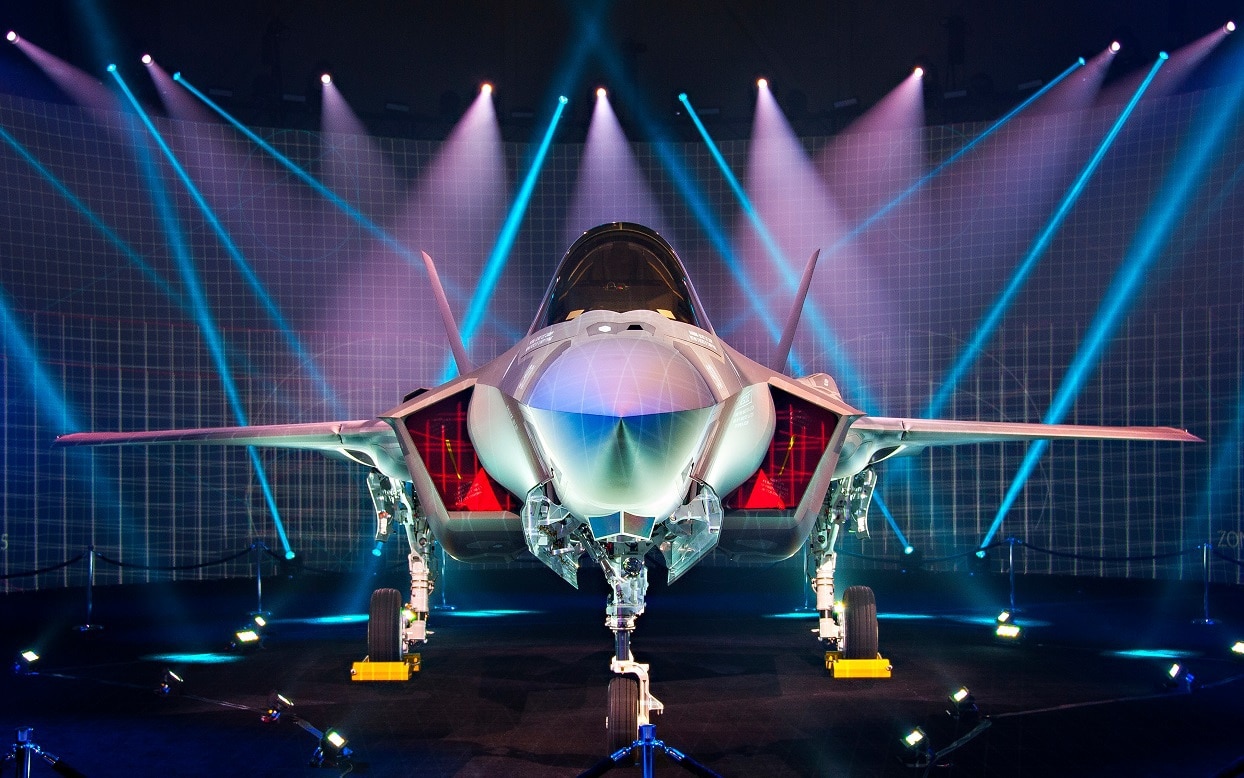Last week, the United States Air Force announced that it was forced to ground the majority of its Lockheed Martin F-35 Lightning II fleet after a defect was discovered with the aircraft’s ejection seat. A faulty component was discovered, which could prevent the pilot from being able to safely egress from the aircraft during an emergency.
Air Combat Command spokeswoman Alexi Worley confirmed the temporary stand-down of ACC-controlled F-35s to BreakingDefense.com.
“ACC’s F-35s do have Martin-Baker ejection seats, and on July 19, began a Time Compliance Technical Directive to inspect all of the cartridges on the ejection seat within 90 days,” Worley explained. “Out of an abundance of caution, ACC units will execute a stand-down on July 29 to expedite the inspection process. Based on data gathered from those inspections, ACC will make a determination to resume operations.”
On Saturday, the Israel Air Force (IAF) also grounded its F-35 fighters for training flights, and IAF chief Major Gen. Tomer Bar even held an assessment on the matter. The decision was to have the entire fleet of 33 jets evaluated over the next few days, with just two planes examined per day by IAF teams who have been provided equipment from Lockheed Martin. Those examinations would be done in a strict and thorough manner in order to return the fleet to full competence while maintaining a high safety standard, the Israel Defense Forces said via a statement to local media.
Each plane found to have working ejection seats will return to flight. However, it was also important to note that Israel’s F-35s were expected to maintain operational activity during the evaluation. The use of the F-35 aircraft would be approved by Bar on a case-by-case basis.
Israel’s F-35s
Israel has 33 of the advanced variant jets in two squadrons, the 116th Lions of the South Squadron and the 140th Golden Eagle Squadron based at Nevatim Airbase. The IAF also has a third squadron used for training.
Israel became the first foreign nation to select the F-35 through the U.S. government’s Foreign Military Sales process when a Letter of Agreement was signed more than a decade ago in October 2010. On June 22, 2016, the IAF received its first F-35A at a ceremony at Lockheed Martin’s Fort Worth, Texas facilities.
However, the IAF had raised the concern that the F-35’s stealth capabilities could be partly overcome within a decade despite the 30- to 40-year service life of the aircraft. To address this issue, Israel sought to utilize its own electronic warfare system (EWS). Initially, the U.S. had refused to allow such changes but eventually agreed to allow Israel to integrate its own EWS, including sensors and countermeasures, on top of the U.S. systems.
Additional changes included a special, IAF-tailored helmet-mounted display, and bespoke datalink functionality that is specific to the Israeli Defense Force (IDF), while other enhancements further improved the F-35’s already-potent data gathering and processing capabilities. All of those new enhancements to the stealth aircraft were significant enough to warrant the ‘I’ designation, making the F-35I one of just a handful of formally acknowledged F-35 variants.
The Israeli Air Force designated the F-35I with the name Adir, which means “Mighty One” in Hebrew.
Problem Being Resolved
The problem with the fifth-generation aircraft’s seat, which is manufactured by Martin-Baker, was first identified in an F-35 at Hill Air Force Base (AFB), Utah, during an inspection. According to reports, a maintainer found that the ejection seat cartridge felt suspiciously light. After a closer look, it was determined that the cartridge was missing its explosive charge that would lift the pilot to safety during an emergency.
In a statement, Lockheed Martin said the company “continues to work closely with the Joint Program Office and customers to ensure safe and effective operations for the F-35 fleet. We are assisting with seat inspections where appropriate to support recent JPO and service direction.”
As of last week, some 2,700 F-35 ejection seat cartridges had been tested throughout the entire F-35 fleet, and only three failures were discovered. However, no pilot would want to be the one unable to eject when necessary.
A Senior Editor for 1945, Peter Suciu is a Michigan-based writer who has contributed to more than four dozen magazines, newspapers and websites. He regularly writes about military hardware, firearms history, cybersecurity and international affairs. Peter is also a Contributing Writer for Forbes. You can follow him on Twitter: @PeterSuciu.

